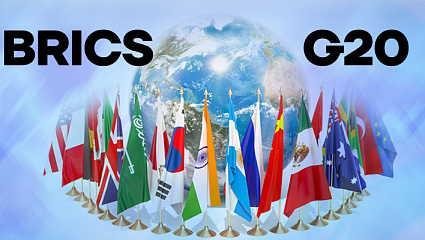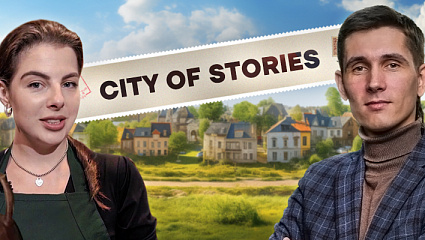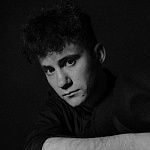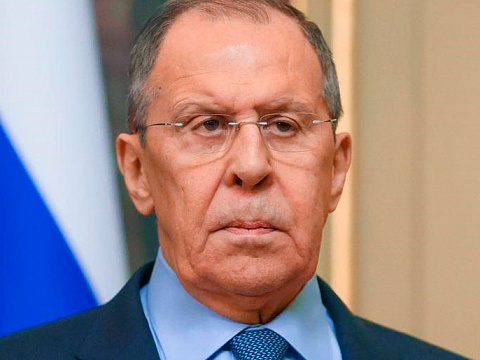Fight the Flu: A New Russian Vaccine
War is declared on flu! St. Petersburg scientists have developed a new vaccine. It contains strains relevant for every season of flu epidemic.
Igor Krasilnikov, Deputy Director of the St. Petersburg Scientific Research Institute of Vaccines and Serums:
"The vaccine is special, because all monovalent vaccines, that is all antigens present in the vaccine, are highly purified. And therefore, the content of impurity non-influenzal proteins is rather small. It is less than in common influenza vaccines. In case of any allergic reactions, at least, if we inoculate with our vaccine, the development of some vaccinal reactions is much less possible than that after inoculating with a common vaccine."
Since 2012, the team of scientists have been creating the world-class vaccine. The novelty is well tolerated at immunization and does not cause complications after it.
Igor Krasilnikov, Deputy Director of the St. Petersburg Scientific Research Institute of Vaccines and Serums:
"The strain has been registered with the number 17/174, it is a standard of antigen for checking other influenza vaccines."
It means that Russia produces a pure antigen: our vaccine is sterile and conforms to the requirements of the World Health Organization. The scientists do their best to protect product quality: they say, they eliminate any risk here. Therefore, a product has to go through a real quest in order to be put in production.
Olga Bubnova, reporter:
"This is a step-over bench. It divides a so-called "nonclass zone" and a "class zone". "Class" means that certain cleanliness requirements act on this territory. In order to enter the class zone, you should put on boot covers and, without putting your feet down, … here we go! And we are in the "class" zone".
Stages, borders, zones and special clothes – regulations on the flu vaccine production site remind the rules of a complex game.
Olga Bubnova, reporter:
"Vaccine production is divided into two zones: "clean" and "infectious". The infectious one is the zone where they work with a live influenza virus. We are going to get to the infectious zone. For this reason, we walk through a special sanitary inspection room: we have disinfected hands and have special white overalls put on us – people call them "snowmen". I even had to clean off lipstick a little: they say, particles of cosmetics can affect quality of future vaccine somehow. Now I put on a mask, glasses – as if I’m going on a space trip! – and above all, don’t forget your hood. Is that all? Let’s go!"
Anastasia Daniyeva, Deputy Head of Anti-Influenza Drugs Department:
"So, we have come to the very beginning. This is the aerosol chamber for disinfection of chicken embryos. Chicken embryos serve as raw materials for production of our vaccine, so they come to us only after the aerosol chamber. Only after disinfection."
However, now it is empty. The chamber is getting ready for disinfection of all used trays. They are being disinfected after each production cycle, that is once in four days.
And here, chicken embryos are infected with influenza virus.
Anastasia Daniyeva, Deputy Head of Anti-Influenza Drugs Department:
"At first, chicken embryos undergo irrigation disinfection, then they enter directly the process of infection assisted by two plates: one plate infects chicken embryos, the second plate undergoes disinfection. And that is how – one process after another – infection is performed. We try to obtain absolute purity."
That means, they eliminate the contact of an embryo with secondary microflora.
From here, infected eggs get into the hot chamber. Chicken embryos are incubated here. The manufacturer’s goal is not to develop an embryo, but to multiply virus in it. At the same time, the embryo has to survive and produce its own antibodies. Depending on a virus strain, the process of infection lasts from 35 to 72 hours.
The hot chamber is equipped with several screens to allow specialists control microclimate around embryos, without entering the chamber.
Anastasia Daniyeva, Deputy Head of Anti-Influenza Drugs Department:
"These embryos are alive. We should provide all conditions for them to make them comfortable, because they are infected, they go there through an illness… When we get sick with an influenza virus, our temperature rises. The embryos are just like that. They fall ill. Therefore, we create the most favorable conditions for them, so that they can suffer it normally."
After incubation, embryos are cooled and sent to the automatic machine called "harvester". First, they throw out low-quality embryos, then they collect virus-containing fluid from good samples. The fluid goes further – to the reactor.
Anastasia Daniyeva, Deputy Head of Anti-Influenza Drugs Department:
"All collected virus-containing allantoic fluid comes to the reactor data. The virus is inactivated here. Inactivated means we kill it."
Liquid is purified from impurity proteins and sent for concentration.
This chamber is called "centrifugal". Here, the product is reduced in volume, i.e. the future vaccine is concentrated, just like milk. And finally, the vaccine with the killed, i.e. inactive virus comes to the clean zone.
The new flu vaccine has been recognized as the Best Russian Project 2019 in the Hi-tech Export nomination. A branch of the St. Petersburg institute works in the Republic of Nicaragua. Since last April, they produce our anti-influenza vaccine there.
During the awards ceremony, representatives of the Research Institute promised: they are not going to be satisfied with what they have already achieved.
Andrey Vasilyev, the First Deputy Director for Corporate Management, SPBNIIVS of FMBA of Russia:
"We negotiate with a number of countries on similar projects, on technology transfer. These are Turkey and Malaysia; some countries of Latin America show a great interest (I won’t name them yet). All in all, we are going to multiply this experience and extend Russian technologies worldwide."
It is important for Russia that the volume of the produced vaccine was enough to inoculate at least 50% of the country population. The Ministry of Health aspires to this rate. It is necessary to eliminate flu transition. For this purpose, it is necessary to vaccinate as many people as possible.
Igor Krasilnikov, Deputy Director of the St. Petersburg Scientific Research Institute of Vaccines and Serums:
"Flu epidemic rages every year. We should not forget about it. And it is important when it begins. That is, for example, in the previous years, it began late enough – in January-February. Sometimes start in November-December. Therefore, the earlier you vaccinate, the less likely you will fall ill."
Olga Bubnova, Oleg Fomin, Anton Kosolapov, Andrey Kostrov, and Ovanes Avetisyan. TV BRICS.
We thank the President Hotel for the help in the organization of shooting at the address: Moscow, B. Yakimanka St., 24







 DIGITAL WORLD
DIGITAL WORLD




































